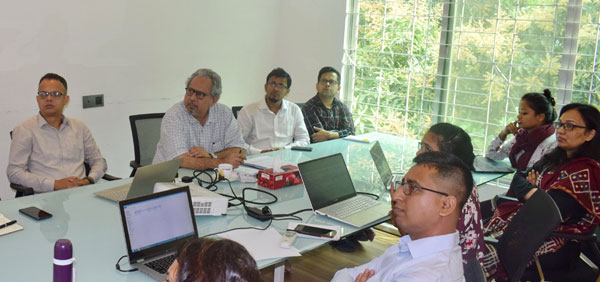Diet-related non-communicable diseases (NCDs) continue to rise in Bangladesh, disproportionately affecting women, children, and the poor. The complex interaction of the fresh food supply chain, price drivers, competition from low-cost and low-nutrition products, and cultural influences affect access to consuming a healthy diet. This project aimed to review how fiscal and regulatory measures can be used to promote healthy diets and reduce NCD-related mortality and morbidity.

The research team used four complementary methods to understand existing systems and policies that promote or hinder access to healthy diets: policy mapping, supply chain analysis, in-depth interviews, and stakeholder engagement. The researchers worked with a wide range of stakeholders to identify the policy gaps in promoting healthy diets and explore relevant barriers and facilitators to implement such policies.
Key Publications:
- Azad A K, Huque R. The crowding-out effect of sugar-sweetened beverages (SSBs) on household expenditure patterns in Bangladesh. BMC Public Health. 2023. https://doi.org/10.1186/s12889-023-16290-7.
- Hossain MN, Islam MS, Abdullah S M, Alam SM, Huque R. Vegetables and fruits retailers in two urban areas of Bangladesh: Disruption due to COVID–19 and implications for NCDs. Plos one. 2023; 18 (1), e0280188 https://journals.plos.org/plosone/article? id=10.1371/journal.pone.0280188
Funding: International Development Research Centre (IDRC)
Duration: January 2020 – June 2023



